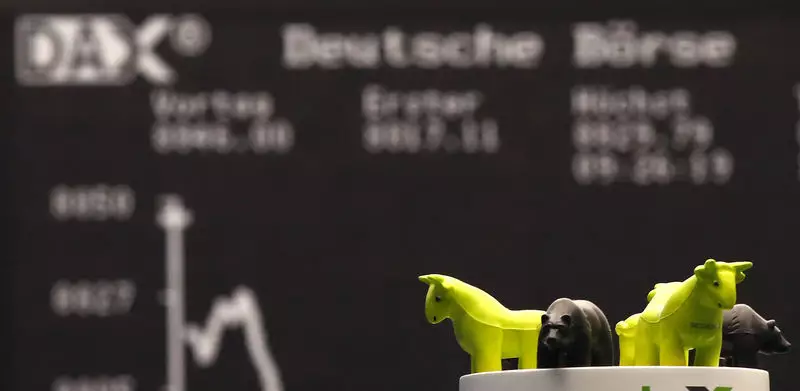As the final trading day of 2024 approaches, European stock markets are witnessing a modest decline. Investors appear to be engaging in profit-taking, reflecting a cautious sentiment that often accompanies year-end trading. At a glance, key indices exhibit limited movement, with Germany’s DAX remaining relatively stable, while France’s CAC 40 and the U.K.’s FTSE 100 have seen slight decreases of 0.1% and 0.3% respectively. The overall atmosphere suggests that traders are maintaining a vigilant stance, as many prepare for the upcoming New Year holiday, resulting in subdued trading activity.
Despite the minor slip on the final day, 2024 has been largely a positive year for European markets. The pan-European STOXX 600 index, while down slightly on this particular trading day, is projected to show a solid gain of approximately 5.5% by year-end. The German DAX has emerged as a standout performer, rallying over 19%, while the FTSE 100 posted an uptick of around 5%. Conversely, the CAC 40 has struggled, grappling with a decline of 2.6%, indicating a divergence in performance among major indices in the region.
Recent economic data adds another layer of complexity to the picture. Spain’s annual inflation rate has edged up to 2.8% in December, after a previous reading of 2.4% in November, signaling a potential for inflationary pressures in the Eurozone. In response, the European Central Bank (ECB) has been proactive in cutting interest rates; however, the situation is evolving. ECB Governing Council member Robert Holzmann remarked that further cuts might take longer than initially anticipated due to this recent inflation surge. The delicate balance of stimulating growth while managing inflation remains a pivotal challenge for policymakers in the region.
Corporate Developments: Siemens Healthineers and Sector Impacts
On the corporate front, notable shifts are occurring. Siemens Healthineers has seen a dip in its stock price following comments from CFO Ralf Thomas regarding the company’s reassessment of its majority stake in the medical technology sector. Such corporate strategies can ripple through the market, impacting investor confidence and stock valuations. As companies navigate their futures, it remains crucial to monitor how these decisions affect sectoral dynamics and overall market responses.
Crude Oil Prices: A Tepid Market Outlook
Compounding these complexities, crude oil prices have also slipped slightly, reflecting muted trading conditions as the year draws to a close. The West Texas Intermediate (WTI) crude futures and Brent contracts both registered minor declines of 0.1%. With the WTI contract down about 1.5% and Brent falling over 4% in 2024, fears regarding slowing demand—especially from China, the world’s largest oil importer—are weighing heavily on the market. This contraction underscores broader concerns about global economic vitality and demand stability.
The end of 2024 finds European markets at a crossroads, balancing strong yearly performances against emerging economic signals and corporate shifts. Investors must remain vigilant as they navigate this nuanced landscape, poised to respond to incoming data and policy adjustments in the early months of 2025.

